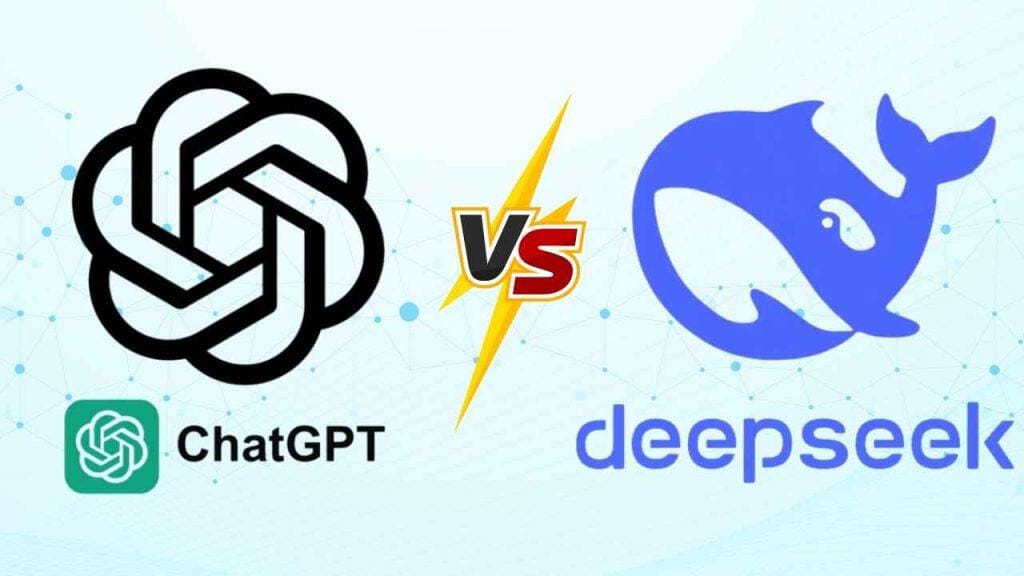
ChatGPT vs. DeepSeek: Which AI Chatbot Reigns Supreme in 2025?
Introduction
So, you’ve probably heard the buzz about AI chatbots lately. They’re everywhere, and honestly, it’s about time! But have you ever wondered which one really stands out in the crowd? Today, we’re diving into a face-off between two heavyweights: ChatGPT and DeepSeek. Buckle up, folks, it’s gonna be a wild ride!
The Rise of AI Chatbots
What’s the Big Deal?
Let’s start with the basics. Why are chatbots so popular? Imagine having a virtual assistant who’s available 24/7, ready to answer your questions, help you shop, or even just chat about your day. Sounds awesome, right?
A Brief History
Once upon a time, chatbots were clunky and a bit robotic. Fast forward to today, and we have sophisticated AI that can hold conversations almost like a human! How cool is that?
ChatGPT: The Veteran
What Makes ChatGPT Tick?
ChatGPT has been around for a while, gaining a reputation for being chatty and knowledgeable. It’s like that friend who knows a little bit about everything.
Key Features
Conversational Ability: ChatGPT can engage in casual chat and provide detailed responses. It’s like having a heart-to-heart with a buddy!
Versatility: Whether you need help with homework or just want to discuss the latest memes, ChatGPT has got your back.
DeepSeek: The New Challenger
What’s DeepSeek All About?
Now, let’s talk about DeepSeek. It’s the new kid on the block, but don’t underestimate it! DeepSeek has some tricks up its sleeve that could give ChatGPT a run for its money.
Unique Selling Points
Search Capabilities: DeepSeek is like a detective; it can sift through massive amounts of data to find exactly what you need. Need a specific fact? DeepSeek is your go-to.
Contextual Understanding: This chatbot can follow along with complex conversations and remember details like your favourite pizza topping.
The Showdown: ChatGPT vs. DeepSeek
Head-to-Head Comparison
Let’s break it down. Who’s better at what?

Which Chatbot Do You Prefer?
When it comes to choosing a chatbot, preferences can vary widely based on individual needs and experiences. Here are some considerations to help you decide:
Personal Preference
ChatGPT: If you enjoy casual conversation and want a chatbot that can engage in light-hearted banter, ChatGPT might be your go-to. It’s like chatting with a friend who’s always ready to talk about anything!
DeepSeek: On the other hand, if you’re looking for a chatbot that excels in searching for specific information and understands context, DeepSeek could be the better option. It’s like having a research assistant at your fingertips!
Use Case
Casual Use: For everyday chats, sharing jokes, or getting quick answers, ChatGPT is often preferred due to its conversational style.
Professional Use: If you need precise answers, data retrieval, or a more structured conversation, DeepSeek might serve you better.
Conclusion
Ultimately, it boils down to what you need from a chatbot. Both have their strengths, and trying them out could help you figure out which fits your style better. So, which chatbot do you prefer? It’s totally up to you!
What Use Case Suits You Best?
When it comes to AI chatbots, choosing the right use case can make all the difference. Here’s a breakdown of various scenarios where chatbots shine and how you can pick the best fit for your needs.
Everyday Conversations
If you’re looking for a chatbot to engage in casual chats, share jokes, or provide entertainment, then a conversational AI like ChatGPT is ideal. It’s perfect for:
- Social Interaction: Chatting about your day or discussing hobbies.
- Learning: Getting explanations on topics in a fun and engaging way.
Information Retrieval
For those who need quick access to specific information or data, a chatbot like DeepSeek excels. It’s best suited for:
- Research Assistance: Finding detailed information or data analysis.
- Technical Support: Answering complex queries in a particular domain.
Customer Support
If you’re a business looking to enhance customer service, chatbots can streamline the process. Consider:
- 24/7 Availability: Providing answers to FAQs at any time.
- Issue Resolution: Guiding customers through troubleshooting steps.
Educational Purposes
In educational settings, chatbots can be great tools for:
- Tutoring: Helping students with homework or explaining concepts.
- Training: Assisting employees with onboarding processes.
Conclusion
Choosing the right use case for a chatbot depends on your personal or business needs. Whether you prioritize casual conversation, information retrieval, or customer support, there’s a chatbot designed for you. So, what use case suits you best?

